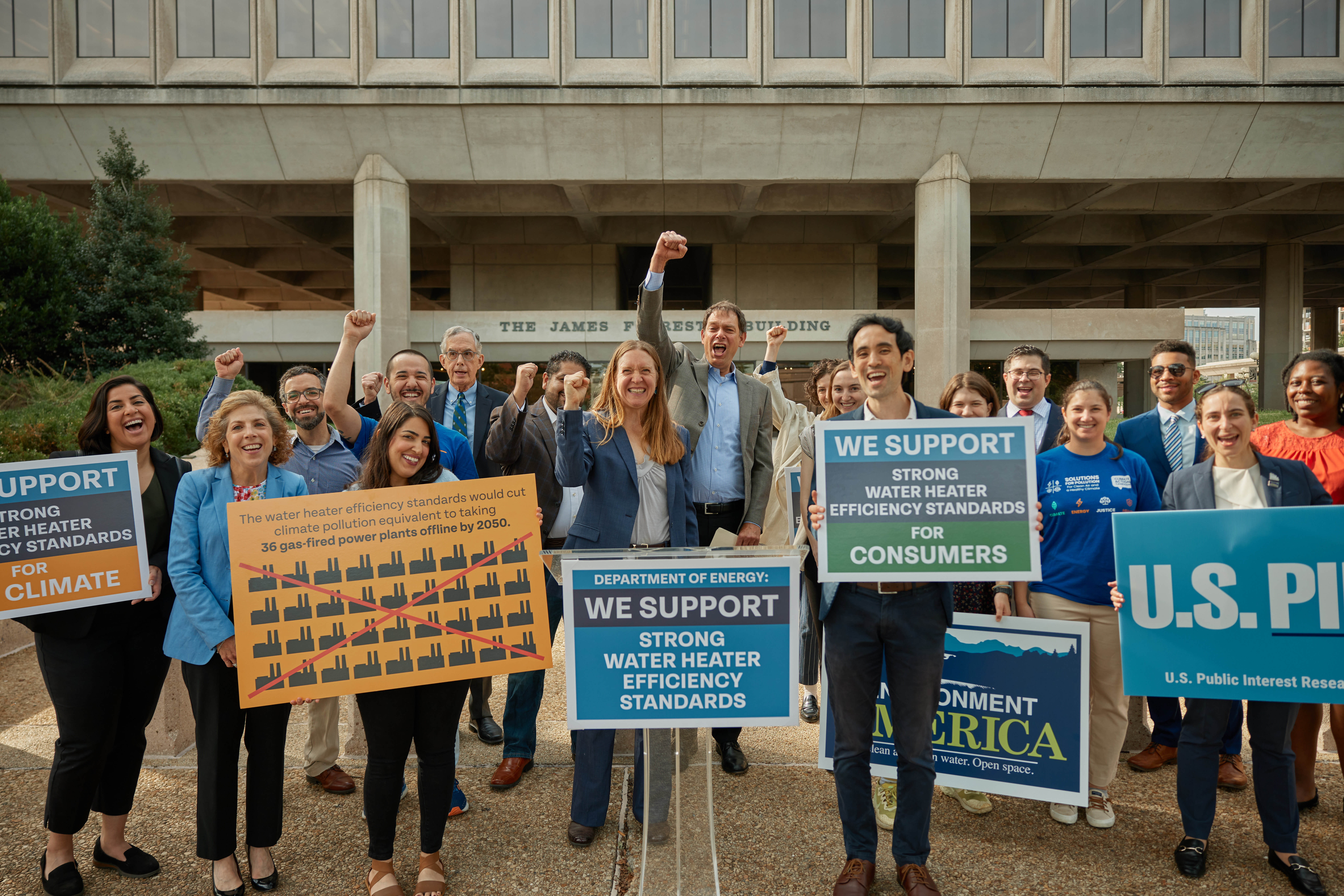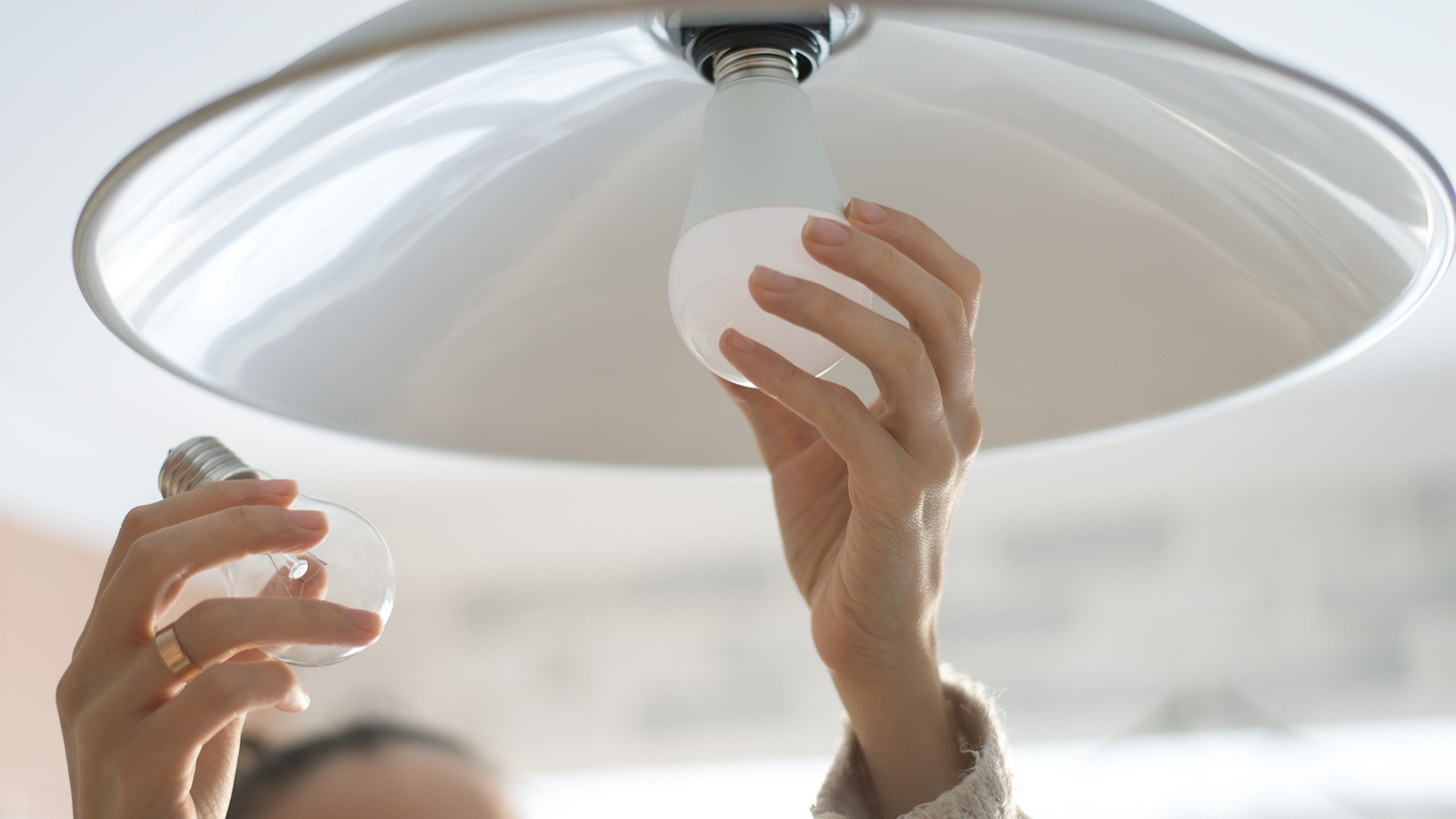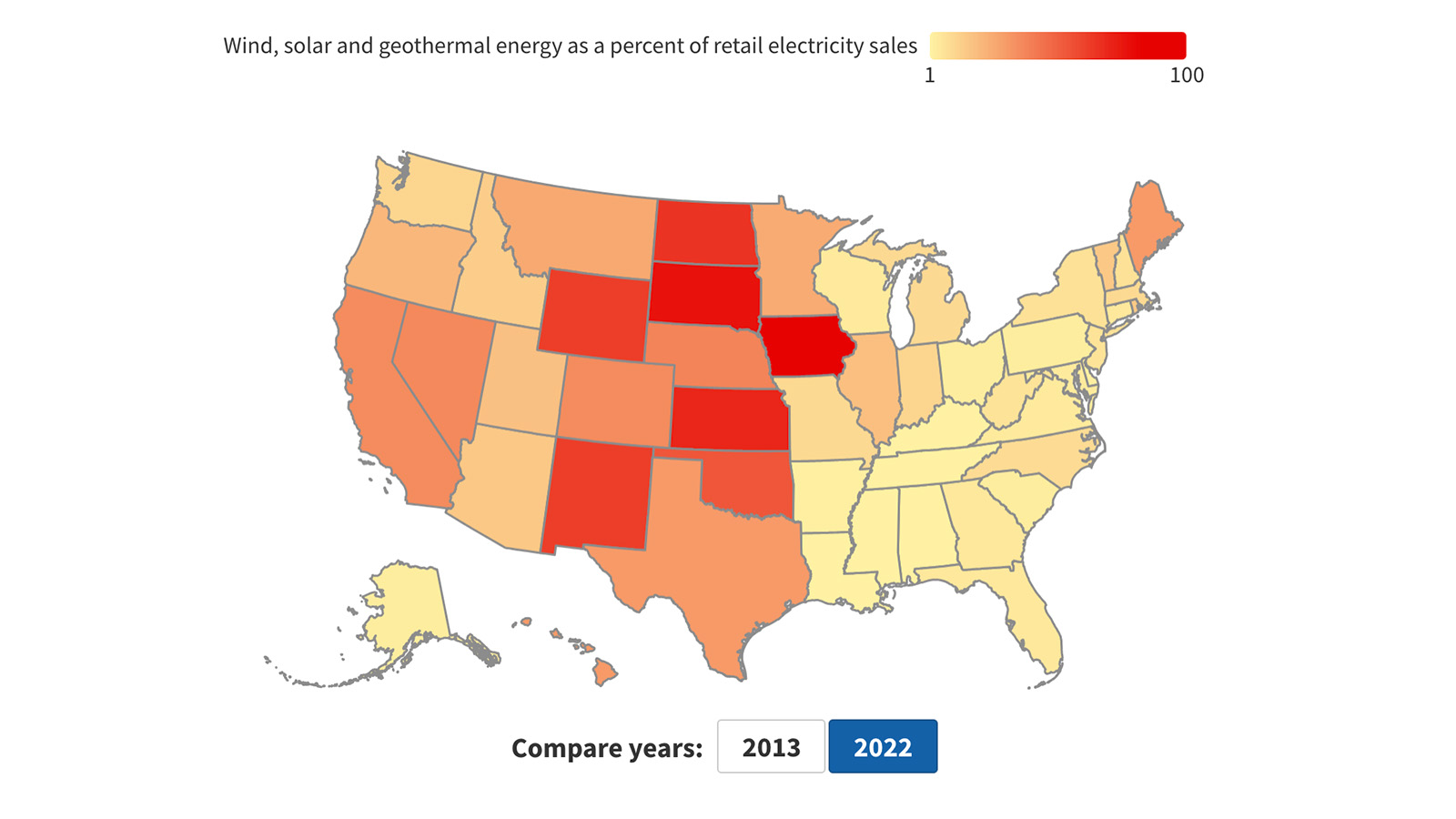
PennEnvironment Testimony in Support of Appliance Efficiency Standards
Public Testimony for the House Consumer Protection, Technology & Utilities Committee
Flora Cardoni, PennEnvironment Field Director
November, 14 2023
Public Testimony for the House Consumer Protection, Technology & Utilities Committee
Good morning. I’d like to start out by thanking Chairman Matzie, Chairman Marshall, Rich Pronesti, and all of the members of the House Consumer Protection, Technology and Utilities Committee for allowing me to testify at today’s hearing on the important topic of energy and water conservation, and House Bill 1615. My name is Flora Cardoni, I’m the Field Director with PennEnvironment. PennEnvironment is a statewide, citizen-based environmental nonprofit group dedicated to ensuring that all Pennsylvanians have clean air to breathe, clean water to drink, protected public lands to enjoy, and a safe and livable climate to call home.
I’m here today to speak in support of House Bill 1615, Representative Jennifer O’Mara and Thomas Mehaffie’s legislation to set energy efficiency and water conservation standards for a set of 15 commonly used appliances sold in Pennsylvania.
The bill works by setting minimum energy efficiency and water conservation standards for the sale of new appliances sold in the state, for these 15 appliances, so that they don’t use more energy or water than necessary.
I would like to start off by giving you a sense of the big picture benefits that passing this policy could deliver for Pennsylvanians. First I’m going to talk about the data on air pollution benefits. Then I’ll go over the expected water savings. Lastly, I’ll give you a sense of what ratepayers will save in their utility bills and why this bill would be so beneficial to consumers.
First, let me start out with the expected reductions in air pollution if we could implement these energy efficiency standards. Research shows that adopting statewide appliance standards helps reduce harmful air and climate pollution from entering our atmosphere, helping to protect our health and tackle climate change at the same time. That’s because the cleanest energy is the energy you don’t need to use in the first place. If implemented into law, the efficiency standards in House Bill 1615 are expected to dramatically slash emissions of harmful air pollutants that cause asthma and other respiratory ailments. For example, nitrogen oxide pollution would be expected to be reduced by 217 tons a year by 2030, and sulfur dioxide reductions are estimated to reach 105 tons a year by 2030. Reducing this pollution will be a huge benefit for the more than one million Pennsylvanians who suffer from asthma.
The standards in House Bill 1615 are also expected to cut carbon dioxide emissions in Pennsylvania by over 384,000 tons by 2030 — that’s equal to taking over 85,000 gas-powered cars off the road. This is a simple and commonsense policy to help reduce Pennsylvania’s carbon footprint and help tackle climate change.
Another significant benefit of appliance efficiency standards is water savings. Sadly, we often don’t think about conserving water until it’s too late. This hit home this summer when the entire state was placed under a drought watch, with 15 counties still remaining in a drought watch or warning today. Conserving water can and should be on our minds year in and year out and these standards would be a big step forward. It’s estimated that the standards proposed in HB 1615 would reduce water use by nearly 10 BILLION gallons annually, by 2030. By 2040, these appliance efficiency standards would save more than 18 billion gallons of water- enough water to meet the needs of nearly 340,000 Pennsylvania households.
Finally, cutting energy waste will also help to save money for Pennsylvania ratepayers. By 2030, the proposed water and energy efficiency standards in House Bill 1615 are projected to save Pennsylvania residents and businesses an incredible $294 million each year, and then reach a whopping $600 million per year in reductions by 2040. As rising utility costs continue to hit Pennsylvania families, we need to tackle this problem from every angle—and that includes making sure that our appliances are as efficient as possible so that we’re not wasting and paying for energy we don’t need to be using in the first place.
You can see all of the data for these projected savings in your packets. But the bottom line is that conserving energy is good for our environment, our health, and for consumers. And House Bill 1615 will help achieve these savings for Pennsylvania residents and businesses.
While all of these benefits are huge, the legislation itself is fairly seamless. There are two very important points I want to make about the implementation of this legislation. First, once the law goes into effect, it will only apply to new appliances being sold in the commonwealth –it will not require consumers or businesses to change out appliances that they already have. It doesn’t make the less efficient appliances illegal to use in Pennsylvania, nor would it be illegal to buy or sell used appliances. It just halts the sale of the inefficient versions of new appliances. Second, I want to emphasize that all of the efficient appliances in HB 1615 are already on the market, competitively priced, and available to Pennsylvania consumers and businesses today.
Finally, I want to emphasize that Representative O’Mara’s legislation to set appliance efficiency standards is modeled after successful legislation already implemented in other states. In fact, since 2018, thirteen other states have adopted efficiency standards for appliances. Their states’ residents are already reaping the benefits of more energy efficient appliances, and Pennsylvania should be the next state to do so.
Setting appliance efficiency standards is a common sense policy with a big impact. After all, we shouldn’t keep using products that expend more energy and water than they need to. Passing this bill would help the Commonwealth reduce energy waste, save water, lower air pollution, and save consumers millions of dollars on their utility bills, benefiting all Pennsylvanians.
Dozens of organizations have joined PennEnvironment in voicing support for this commonsense policy, including Natural Resources Defense Council (NRDC), Green Building Alliance, Keystone Energy Efficiency Alliance (or KEEA), Physicians for Social Responsibility Pennsylvania, the Public Utility Law Center, Clean Air Council, Clean Water Action, PennFuture, CVPA, Sierra Club and more. This letter is included in your packet. And it’s not just these groups–polling shows that 83% of registered voters across parties support setting stronger efficiency standards for appliances as well.
Given all of the benefits of this bill and the widespread support for this policy, PennEnvironment supports HB 1615 and hopes that this committee will bring up and pass this important legislation.
Thank you.
Topics
Authors
Flora Cardoni
Field Director, PennEnvironment
Started on staff: 2016 B.A., summa cum laude, Tufts University Flora oversees much of PennEnvironment’s climate and grassroots organizing work, directing staff and mobilizing volunteers around the state to fight climate change and promote good clean energy policy in Pennsylvania. Before taking on this role, Flora was a member of Green Corps where she led campaigns to register youth to vote in Arizona and oppose the Dakota Access Pipeline in Iowa. She’s also directed several door to door canvass offices around the state on behalf of PennEnvironment and Work For Progress. Flora lives in Philadelphia where she enjoys long walks around the city, taking in all of the art, food, and parks it has to offer.
Find Out More

Let’s finalize the proposed water heater efficiency standards

Simple Home Energy Tips:
Coalition Letter in support of PA Appliance Efficiency Standards 2023-2024

